Accept Cookies?
We use cookies to personalize content and ads, provide social media features, and analyze our traffic. Click accept to agree to our use of cookies as per our Cookie Policy.
Stay Ahead. Stay Trendy
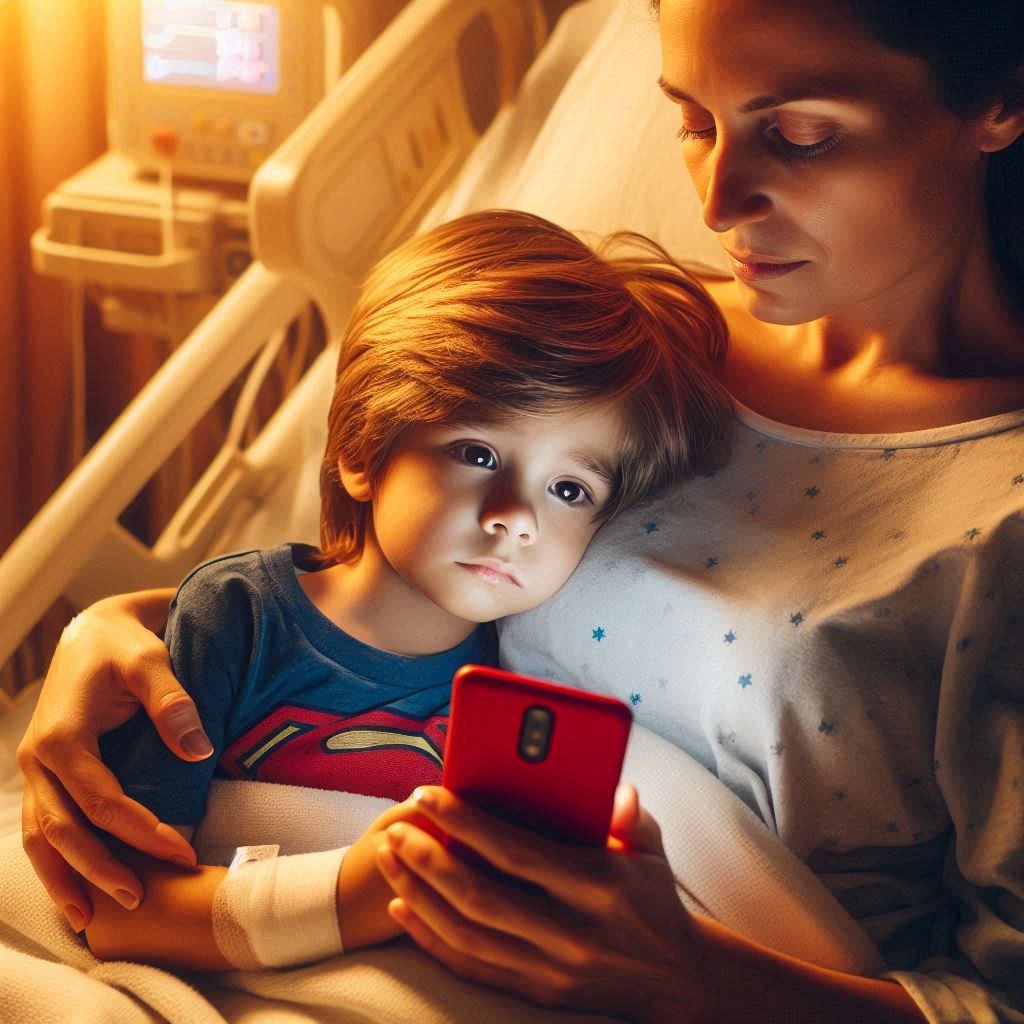
Table of Contents
ToggleA True Story of Courage Beyond His Years
When most 6-year-olds are worried about what cartoon to watch or which toy to play with, little Marcus Thompson was facing a life-or-death situation that would test his courage in ways no child should ever have to experience. What happened next will leave you speechless and restore your faith in the incredible power of a child’s love.
It started like any other Tuesday morning in their small apartment in Denver, Colorado. Sarah Thompson, a single mother working two jobs to make ends meet, was getting ready for her early shift at the local diner. Six-year-old Marcus was eating his cereal, chattering about his upcoming show-and-tell at school.
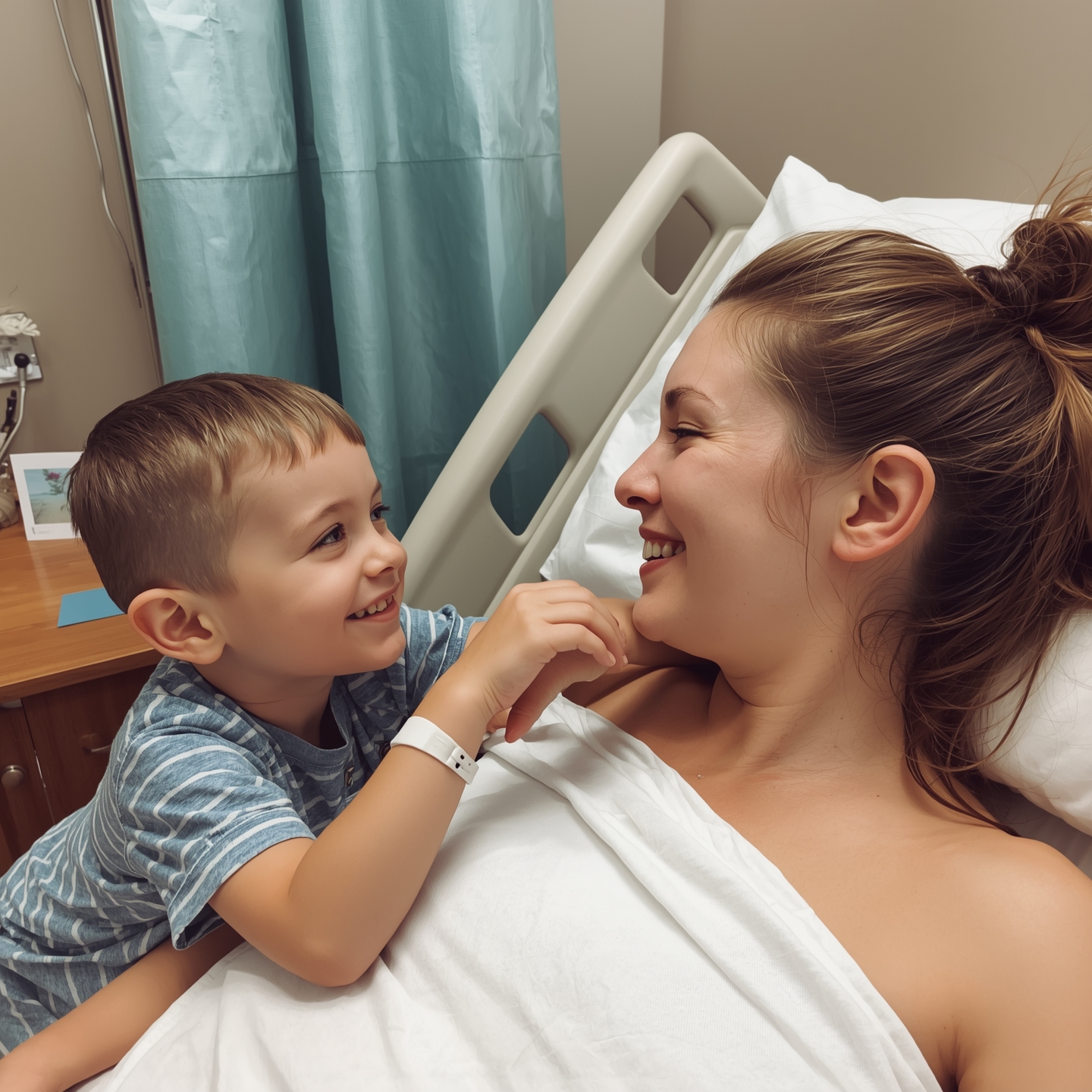
“Mom, can I bring your old camera for show-and-tell?” Marcus asked, swinging his little legs from the kitchen chair.
“We’ll see, sweetie,” Sarah replied, though she seemed unusually tired. She’d been feeling dizzy lately, but with no health insurance and bills piling up, a doctor’s visit wasn’t in the budget.
What Sarah didn’t know was that her blood pressure had been silently climbing to dangerous levels for weeks.
At exactly 7:23 AM, as Sarah was reaching for her work uniform, she collapsed.
Marcus heard the loud thud from the kitchen and ran to find his mother unconscious on the bedroom floor, her face pale and her breathing shallow. For most children, this would be a moment of paralyzing fear.
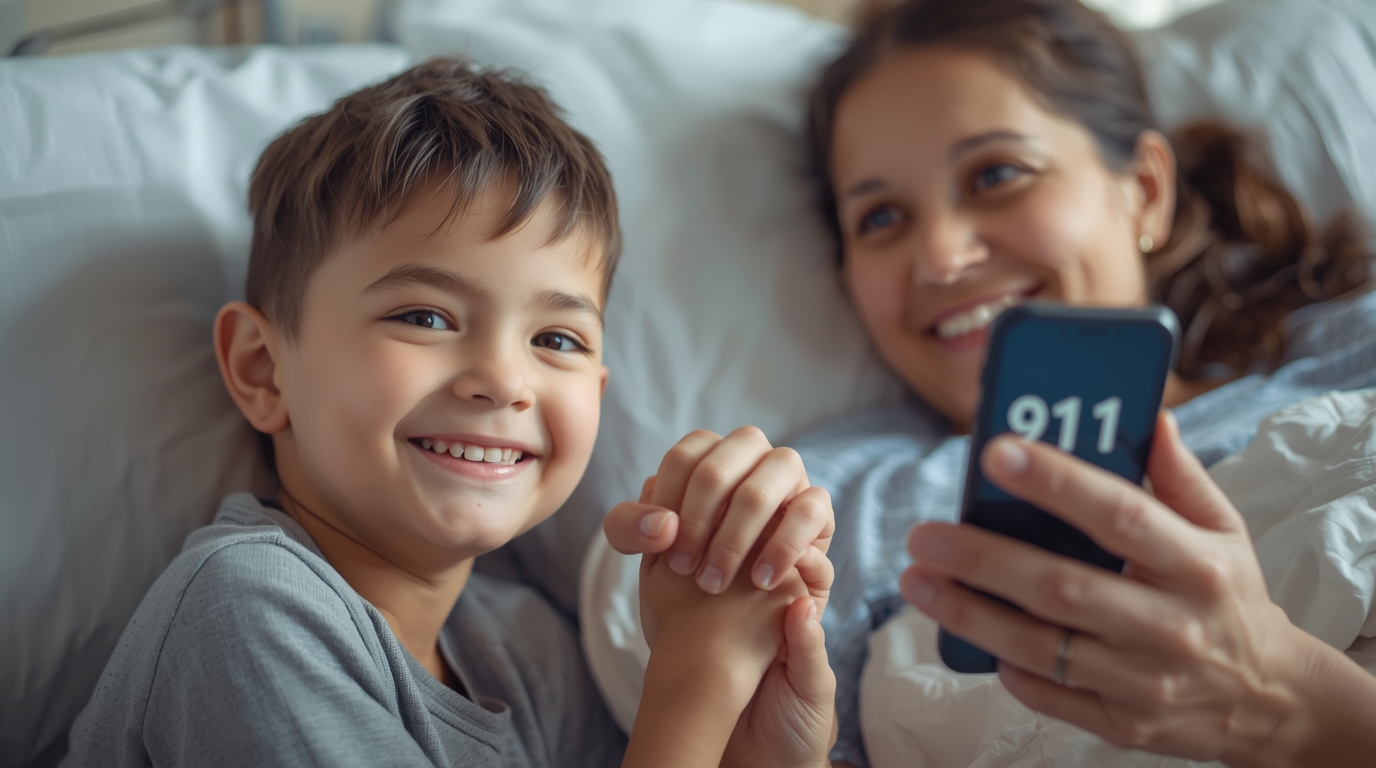
But Marcus had been paying attention to something most kids his age never think about.
Three months earlier, his school had a special assembly. A paramedic named Officer Rodriguez had visited to teach the children about emergency situations. While other kids giggled and whispered during the presentation, Marcus listened intently as Officer Rodriguez explained what to do “if a grown-up falls down and won’t wake up.”
Standing over his unconscious mother, Marcus felt his heart pounding. But instead of crying or running to hide, he remembered Officer Rodriguez’s words: “Don’t panic. Think. Act.”
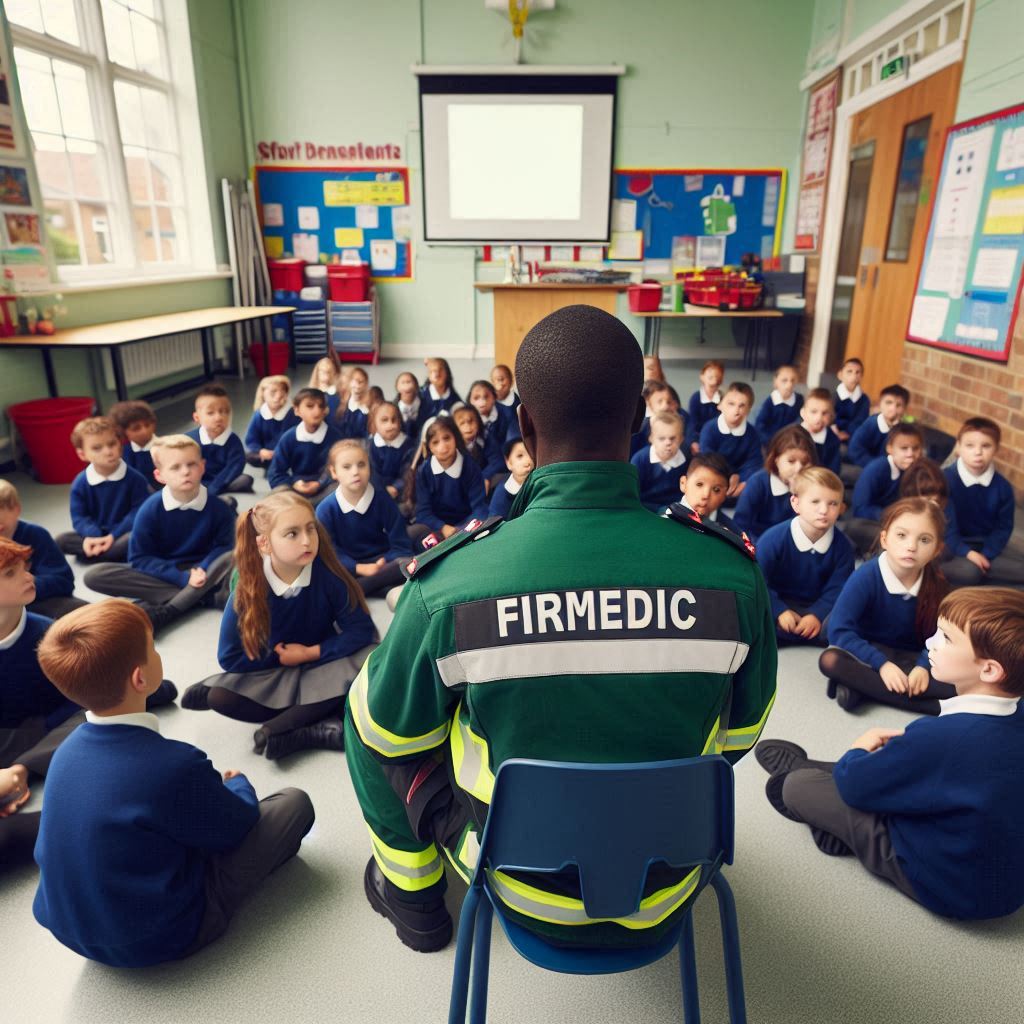
Here’s what this remarkable 6-year-old did that shocked everyone:
Step 1: He checked if his mother was breathing by putting his small hand near her nose, just like he’d been taught.
Step 2: He grabbed the cordless phone and dialed 911, clearly stating his address—which he had memorized after his mother made him practice it dozens of times.
Step 3: But here’s the part that left the 911 operator speechless: Marcus calmly described his mother’s condition using words no 6-year-old should know. “My mommy fell down and won’t wake up. Her breathing is really slow and her skin looks gray. I think something is really wrong.”
Step 4: When the operator asked if he could unlock the front door, Marcus not only unlocked it but turned on all the lights and moved furniture out of the way so paramedics could get to his mother quickly.
Step 5: The most shocking part: Marcus grabbed his mother’s purse and had her ID and insurance information ready for the paramedics—something many adults forget to do in emergencies.
Paramedic Rodriguez (the same officer who had visited Marcus’s school) arrived with his team within six minutes. He couldn’t believe his eyes when he saw little Marcus standing calmly by his mother, holding her hand and talking to her softly.
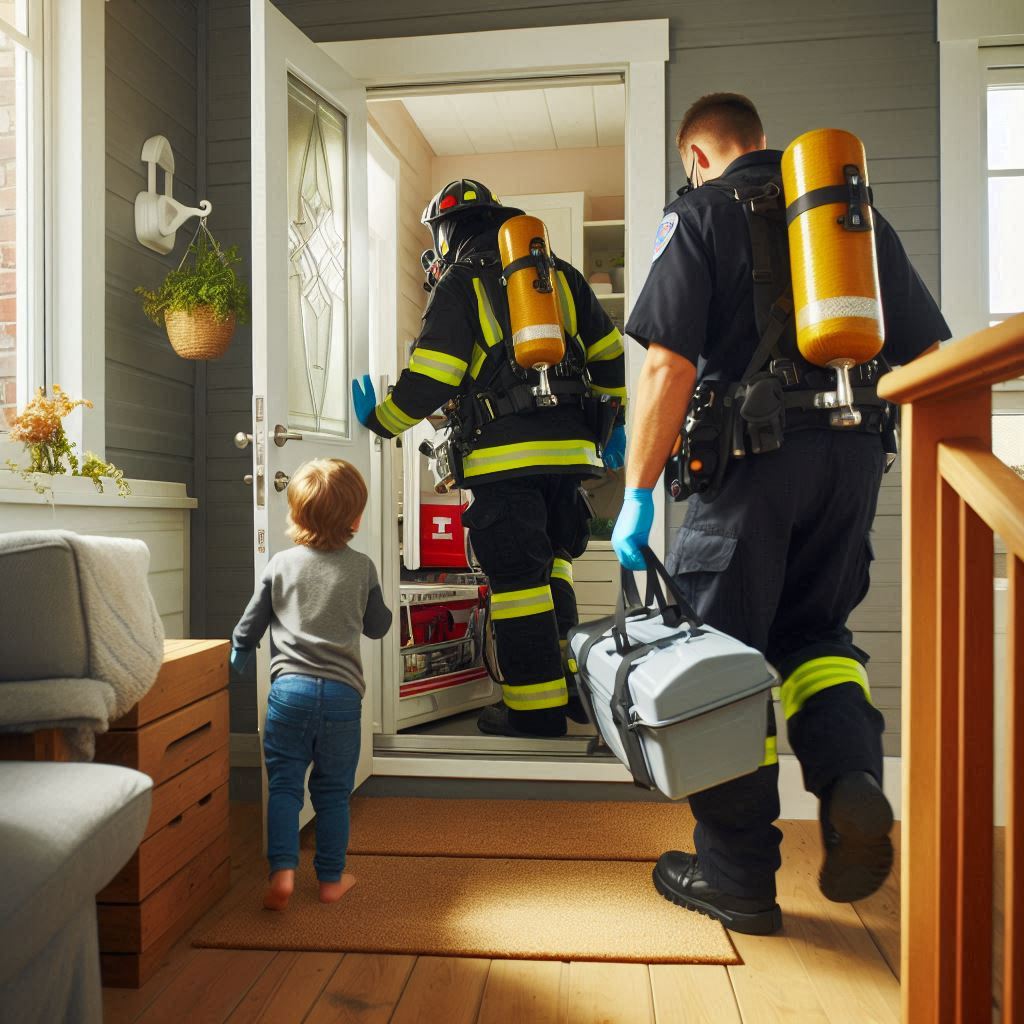
“She can’t hear you right now, buddy,” Rodriguez said gently.
“I know,” Marcus replied. “But my teacher says that sometimes people who are sleeping can still hear love.”
Sarah’s blood pressure had spiked to 220/110—a level that could have caused a stroke or heart attack at any moment. The paramedics later said that Marcus’s quick actions and clear communication probably saved his mother’s life.
At the hospital, doctors worked quickly to stabilize Sarah. When she finally opened her eyes 18 hours later, the first thing she saw was Marcus sleeping in a chair beside her bed, still holding her hand.
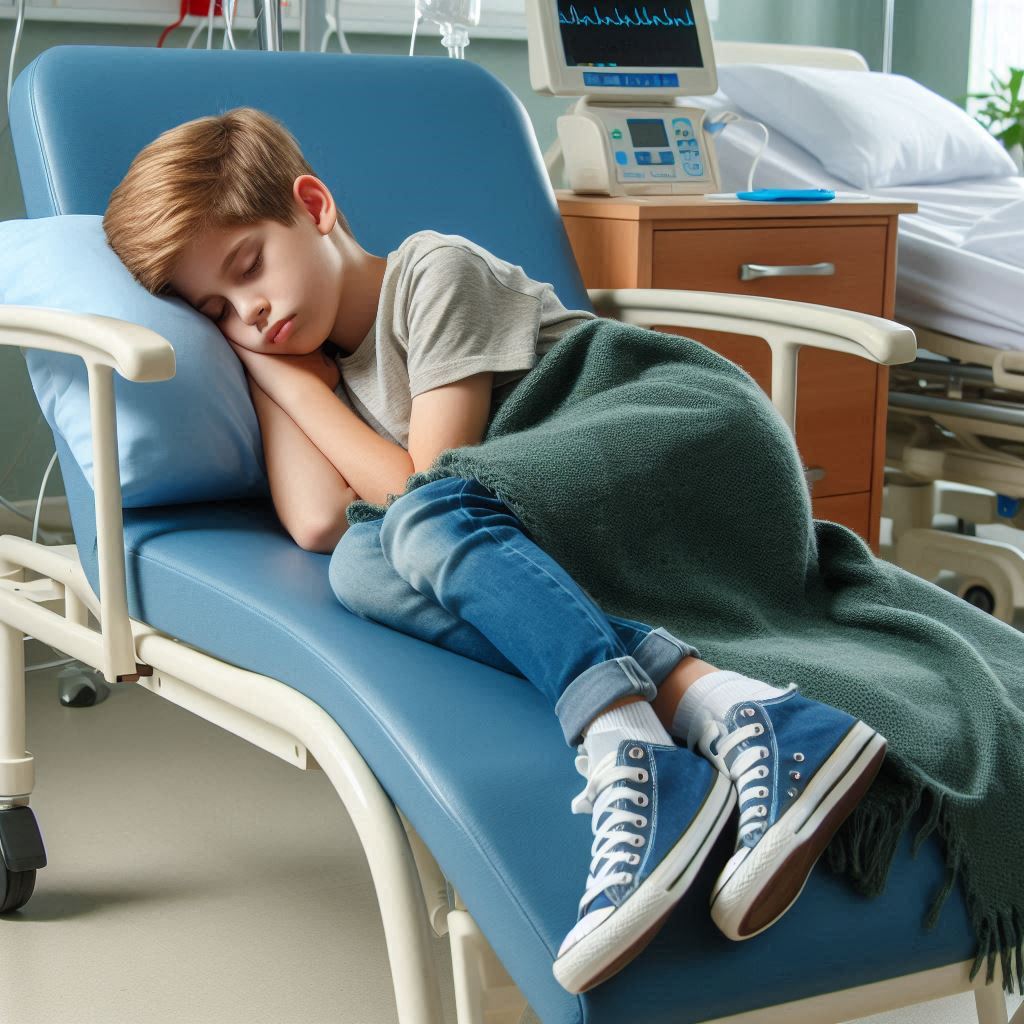
“Mommy,” he whispered when he saw her awake. “I called the helpers, just like you taught me.”
Dr. Patricia Williams, the attending physician, pulled Sarah aside later. “Mrs. Thompson, your son’s actions were extraordinary. Most adults don’t respond that well in emergencies. You should be incredibly proud.”
But the doctor had more shocking news: “We ran some tests and found that you’ve been having small, silent heart episodes for weeks. Without immediate treatment, you could have had a major cardiac event within days.”
It turns out that Sarah’s emphasis on teaching Marcus their address, phone number, and basic safety wasn’t just good parenting—it was lifesaving preparation. After her husband left when Marcus was three, Sarah had worried constantly about what would happen to her son if something happened to her.
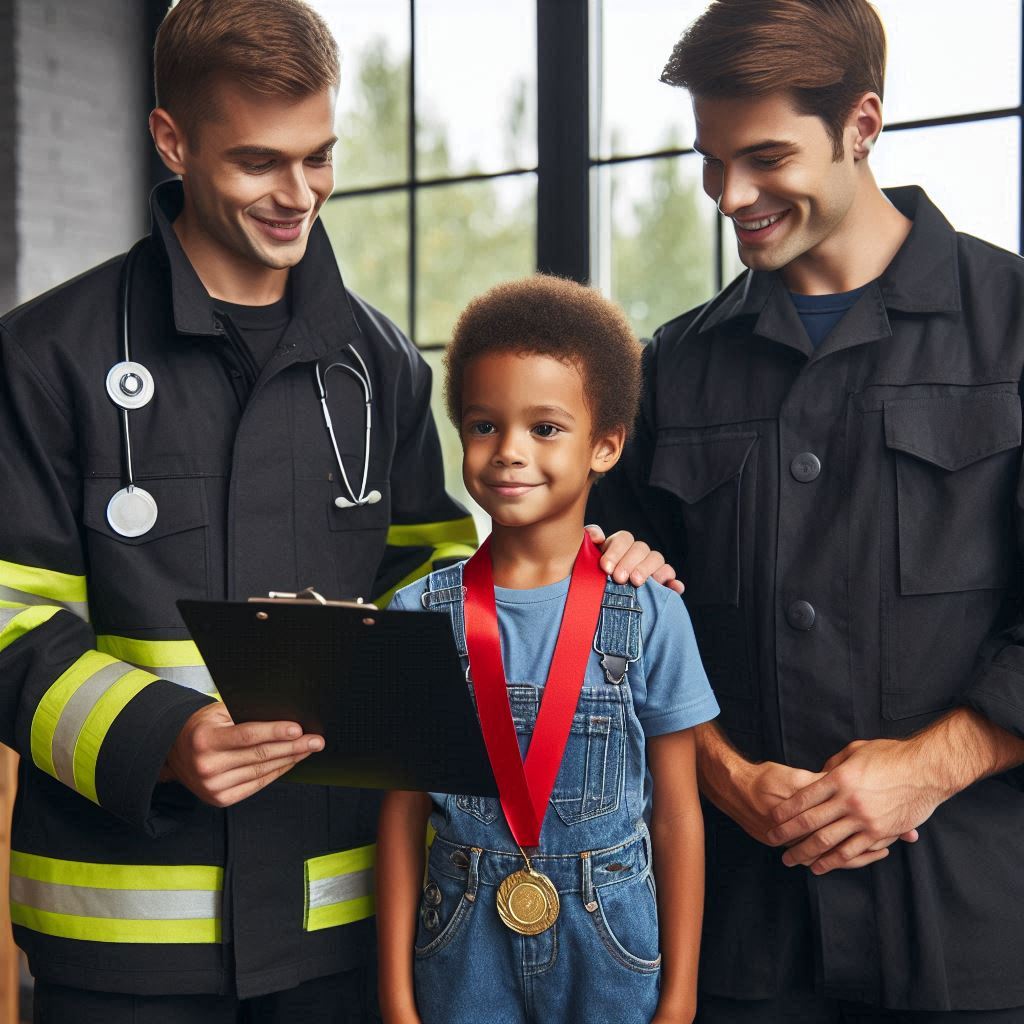
“I used to lie awake at night thinking, ‘What if I get sick? What if there’s an emergency?'” Sarah recalls. “So I started teaching him little things—our address, how to use the phone, what to do if mommy doesn’t feel good.”
She also made sure Marcus understood that grown-ups sometimes need help too, and that it’s okay for children to be helpers in scary situations.
News of Marcus’s heroic actions spread quickly through their community. The local fire department invited him for a special ceremony, and Officer Rodriguez personally thanked him for paying attention during that school assembly.
But the most touching response came from Marcus’s teacher, Mrs. Henderson: “Marcus has always been special, but what he did shows that we should never underestimate what children are capable of when we give them the right tools and knowledge.”
The school district was so impressed that they expanded their emergency preparedness program, making sure every child knows basic life-saving information.
Marcus’s story isn’t just heartwarming—it’s educational. Here’s what every parent should teach their children, starting as early as age 4:
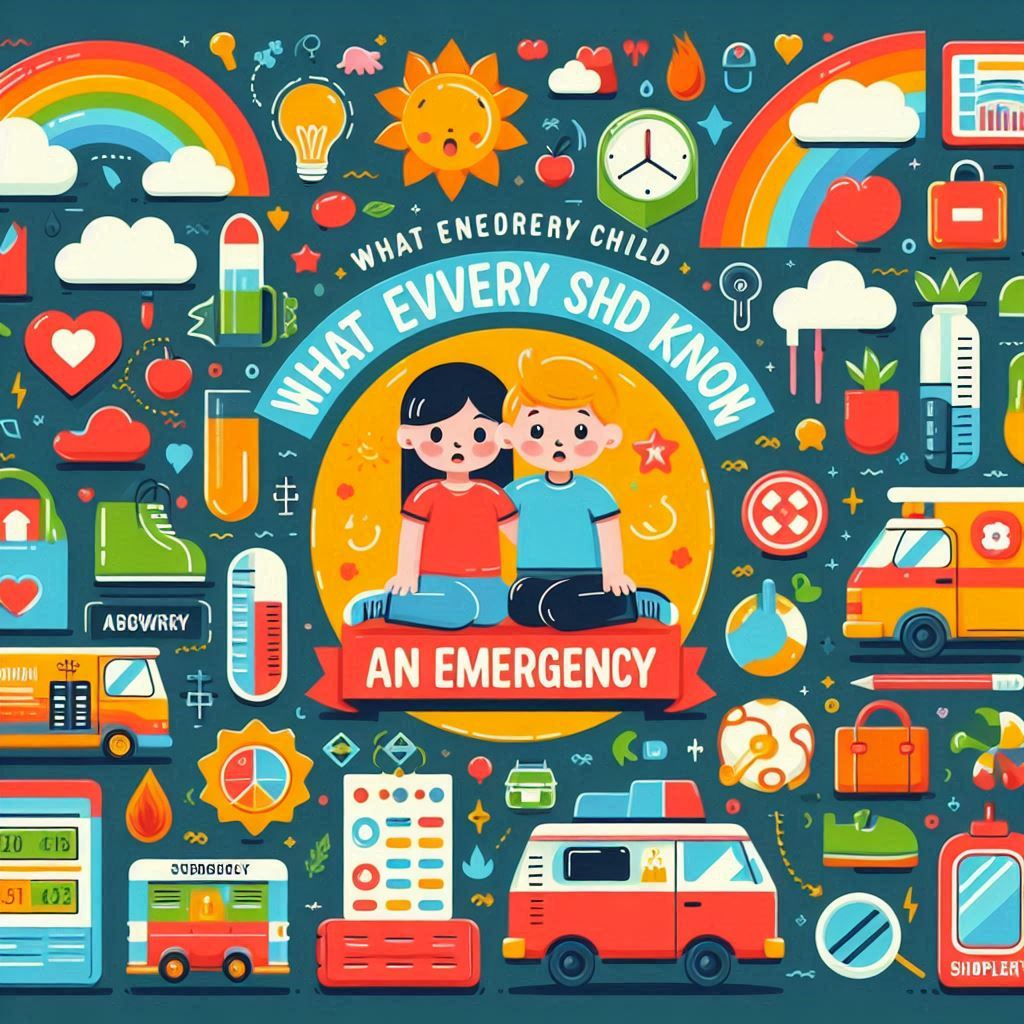
Essential Life Skills:
Emotional Preparation:
Today, Marcus is a confident 7-year-old who still helps his mother (who has made a full recovery) and dreams of becoming a paramedic like Officer Rodriguez. His mother has health insurance now, thanks to community support and a better job she found after her recovery.
But perhaps the most beautiful part of this story is what Marcus said when asked if he was scared that day:
“I was scared,” he admitted. “But my mommy always tells me that being brave doesn’t mean you’re not scared. It means you do the right thing even when you are scared. I love my mommy, so I had to be brave.”
Marcus Thompson’s story teaches us that heroism isn’t about age, size, or strength. It’s about love, preparation, and the courage to act when others need us most.
In a world where we often hear negative stories about children, Marcus reminds us that kids are capable of incredible things when we invest in teaching them, trusting them, and showing them that they matter.
The question isn’t whether your child could be a hero in an emergency. The question is: Are you preparing them to be one?
Every parent reading this has the power to plant seeds of courage, knowledge, and compassion in their children—seeds that could one day save a life, just like Marcus did.

Sometimes the smallest heroes make the biggest difference. And sometimes, the most important lessons we can teach our children are the ones we hope they’ll never need to use.
But when they do need them, as Marcus proved, those lessons become the difference between tragedy and miracle.
Sarah and Marcus Thompson have given permission to share their story in hopes it will inspire other families to prepare for emergencies and never underestimate what children can accomplish with the right guidance and love.
We use cookies to personalize content and ads, provide social media features, and analyze our traffic. Click accept to agree to our use of cookies as per our Cookie Policy.